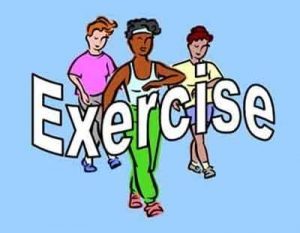- Home
- Editorial
- News
- Practice Guidelines
- Anesthesiology Guidelines
- Cancer Guidelines
- Cardiac Sciences Guidelines
- Critical Care Guidelines
- Dentistry Guidelines
- Dermatology Guidelines
- Diabetes and Endo Guidelines
- Diagnostics Guidelines
- ENT Guidelines
- Featured Practice Guidelines
- Gastroenterology Guidelines
- Geriatrics Guidelines
- Medicine Guidelines
- Nephrology Guidelines
- Neurosciences Guidelines
- Obs and Gynae Guidelines
- Ophthalmology Guidelines
- Orthopaedics Guidelines
- Paediatrics Guidelines
- Psychiatry Guidelines
- Pulmonology Guidelines
- Radiology Guidelines
- Surgery Guidelines
- Urology Guidelines
New Guideline: Exercise may improve thinking ability and memory

Exercising twice a week may improve thinking ability and memory in people with mild cognitive impairment (MCI), according to a guideline released by the American Academy of Neurology. The recommendation is an update to the AAN's previous guideline on mild cognitive impairment and is published in the December 27, 2017, online issue of Neurology®, the medical journal of the American Academy of Neurology. The guideline is endorsed by the Alzheimer's Association.
Mild cognitive impairment is a medical condition that is common with aging. While it is linked to problems with thinking ability and memory, it is not the same as dementia. People with MCI have milder symptoms. They may struggle to complete complex tasks or have difficulty understanding information they have read, whereas people with dementia have trouble with daily tasks, such as dressing, bathing and eating. However, there is strong evidence that MCI can lead to dementia.
"It's exciting that exercise may help improve memory at this stage, as it's something most people can do and of course it has overall health benefits," said lead author Ronald C. Petersen, MD, PhD, of the Mayo Clinic in Rochester, Minn., and a Fellow of the American Academy of Neurology. "Because MCI may progress to dementia, it is particularly important that MCI is diagnosed early."
According to the guideline, doctors should recommend that people with MCI exercise regularly as part of an overall approach to managing their symptoms. Although long-term studies have not been conducted, six-month studies suggest twice-weekly workouts may improve memory.
The guideline states that there are no FDA-approved medications for the treatment of MCI. Moreover, there are no high-quality, long-term studies that suggest drugs or dietary changes can improve thinking ability or delay memory problems in people with MCI.
The guideline states that doctors may recommend cognitive training for people with MCI. There is weak evidence that cognitive training may be beneficial in improving measures of cognitive function.
The American Academy of Neurology's guideline authors developed the recommendations after reviewing all available studies on MCI. Worldwide, more than 6 percent of people in their 60s have MCI, and the condition becomes more common with age. More than 37 percent of people age 85 and older have it.
"If you or others have noticed that you are forgetful and are having trouble with complex tasks, you should see your doctor to be evaluated and not assume that it is just part of normal aging," said Petersen. "Sometimes memory problems are a side effect of medications, sleep disturbances, depression, or other causes that can be treated. It is important to meet with your doctor to determine the root cause. Early action may keep memory problems from getting worse."

Disclaimer: This site is primarily intended for healthcare professionals. Any content/information on this website does not replace the advice of medical and/or health professionals and should not be construed as medical/diagnostic advice/endorsement or prescription. Use of this site is subject to our terms of use, privacy policy, advertisement policy. © 2020 Minerva Medical Treatment Pvt Ltd